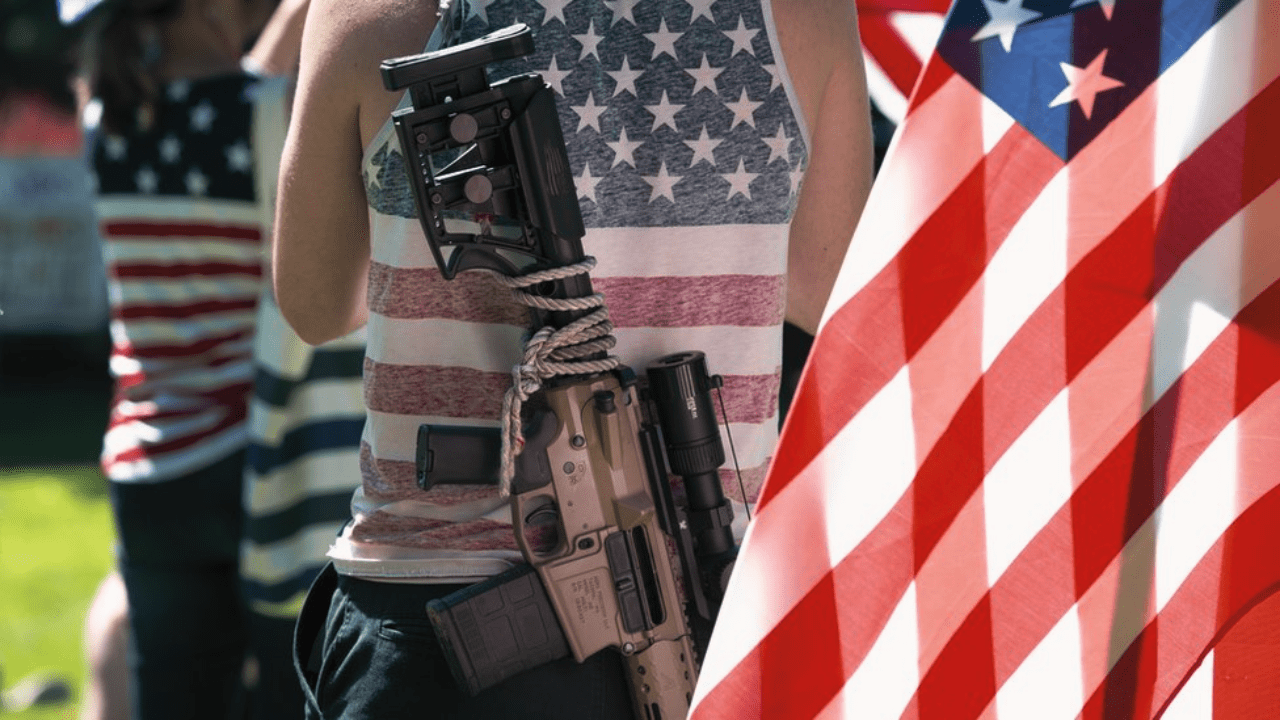Statistics have indicated a drastic increase in the number of mass shootings in the U.S over the last five years (Pew Research Centre, 2023). This surge in gun violence has sparked heated debates about the root causes of such incidents, with diverging views on how to address the issue. Some attribute the rise in mass shootings to mental health problems, while others point to a lack of adequate gun regulations and enforcement. This complex issue continues to challenge lawmakers, prompting calls for both stricter gun control and more effective mental health interventions to mitigate future tragedies.
Gun control in the United States has been a contentious and multifaceted policy issue, garnering significant attention over the past five years. The issue is defined in different ways by different policymakers and legislators. According to statistics, mass shootings in the U.S. have dramatically increased in the past five years, with differing perspectives on the root causes (Pew Research Centre, 2023). Right-wing views attribute gun violence to individual mental health issues, focusing on stricter punishments for illegal firearm use and advocating for easier access to firearms, including permitless carry for self-defence (Fleming et al., 2016). This perspective sees the gunman, not the firearm, as the primary issue. Opposing this view, left-wing perspectives point to inadequate gun laws and the failure of public services like mental health care as systemic factors causing gun violence (Haider-Markel & Joslyn, 2012; 2017). Democrats argue for more restrictive gun laws, including universal background checks, bans on assault rifles, and red flag laws, viewing gun violence as a public health crisis. Republicans emphasising individual responsibility and Second Amendment rights, blaming cultural decline and societal issues while Democrats advocating for government intervention and structural reforms, focusing on gun access and social inequalities as the root causes of violence (Merino, 2018). Both sides’ policy proposals reflect their broader ideological commitments, creating a stark divide in the approach to gun violence and control.
Republican opposition to gun control measures, led by figures like Senator Cruz, is heavily influenced by the National Rifle Association (NRA), which plays a key role in shaping party policy. The NRA uses lobbying, campaign support, and financial resources to exert influence over Republican policymakers, aligning with party values of individual rights, responsibility, and Second Amendment protection. This strategic use of resources reinforces the party’s stance against restrictive gun control measures and shapes its definition of gun violence. Similarly, Democratic support for stricter gun control is driven by influential groups like March For Our Lives, Everytown for Gun Safety, and Moms Demand Action. These organizations use lobbying, grassroots campaigns, and financial contributions to shape policy and sway Democratic lawmakers. These groups emphasize comprehensive reforms, including stricter regulations and addressing broader societal issues like mental health and access to firearms. By framing gun violence as a public health crisis, they advocate for legislative changes aimed at reducing violence and protecting communities, legislative commitments for the Democratic Party. Both sides leverage elite networks and financial resources to define the problem of gun violence and influence the direction of policy debates.
To address gun violence in the U.S., I propose a robust and comprehensive firearm licensing and safe storage system, inspired by Switzerland’s successful model. This system would strike a balance between Second Amendment rights and the establishment of a foundational consensus amongst Democratic and Republican states regarding public safety. It would establish a federal framework with eligibility criteria, background checks, and mandatory training for all gun owners. Comprehensive background checks would include assessments of criminal history, mental health, and domestic violence records. Mandatory safety training would cover safe handling, storage, and responsible gun ownership, ensuring ammunition and firearms are stored separately. Individuals would need to justify their need for a firearm—self-defense, hunting, or professional use—and licenses would be issued accordingly. Lastly, periodic license renewals (monthly for new owners, every six weeks for those with long-term ownership) would re-assess eligibility and update background checks.
Resistance from interest groups and concerns over Second Ammendment rights requires bipartisan efforts to balance safety and individual rights. Success depends on maintaining stakeholder dialouge, addressing loopholes, and ensuring uniform implementation of training rsources, background checks, enforcement, and adequate funding. Success will be measured by reducing gun-related incedences, lower crime rates, and public confidence, with ongoing evaluation through studies, audits, and feedback. Public support and comparisons to countries like Switzerland will gauge legitimacy. To avoid ineffective policies, my proposal emphasizes evidence-based decision-making and reugarl updates to keep the system responsive to evolving needs.
In conclusion, the implementation of a comprehensive firearm licensing system and safe storage legislation is a critical step towards addressing gun violence in the U.S. The proposal balances evidence-based approaches, international practices, and political considerations to create a comprehensive and adaptable policy response. Success will be contingent on effective implementation strategies, ongoing evaluation, and a strong bipartisan commitment to evidence-based policy making.

